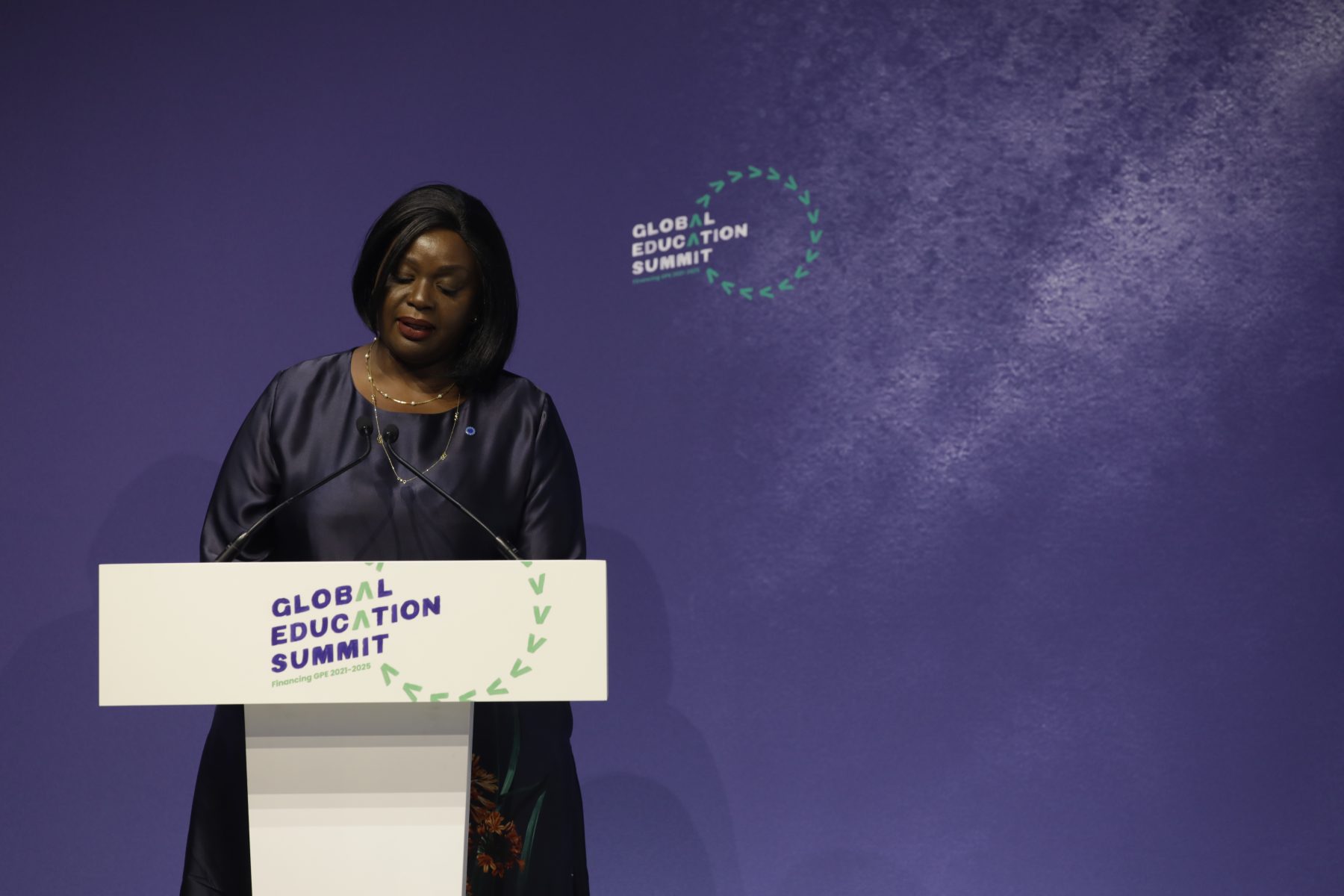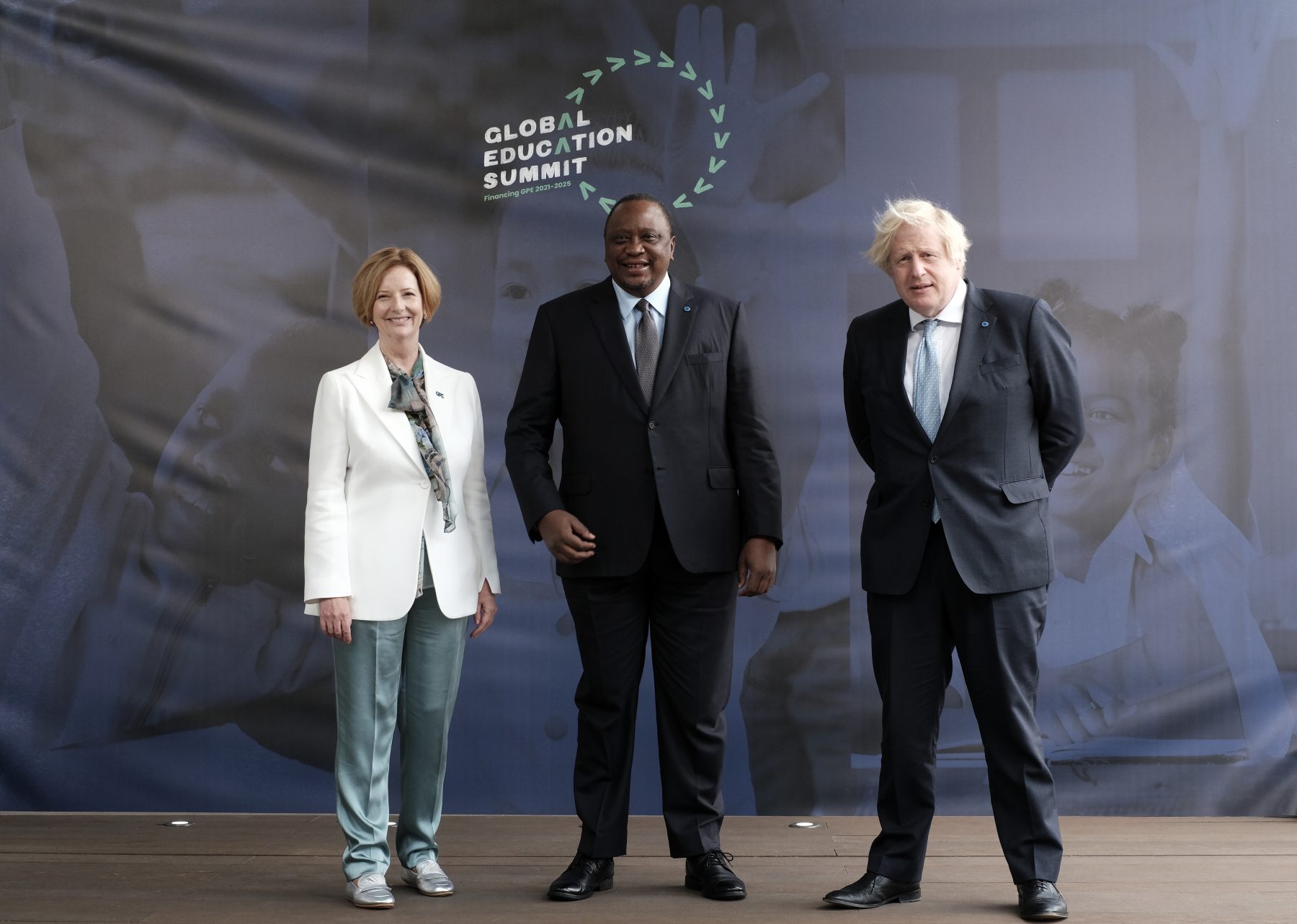Technology in education wins big at the GPE Summit
Leaders from across the world convened in London last week, to seek financial support for education and seek political commitment from governments to prioritize financing the education sector from domestic budgets.
The Global Partnership for Education Summit, held in London was Co-chaired by the UK Prime Minister Boris Johnson and Kenyan President Uhuru Kenyatta.
The two leaders rallied their counterparts to step up efforts to provide transformational education systems to the hundreds of millions of children currently being left behind.
President Kenyatta urged government leaders to continue investing in and prioritising education by enacting supporting policies and increasing domestic resource allocation to the sector. At the same time, he underscored the importance of embracing digital technology and harnessing its full potential to improve and transform education.
Speaking at the Summit, Kenyatta said that he imagines a world where every child has access to digital technology as a tool to learn; as much as they wish and to experience the world from the comfort of their classroom or their home.
“That is why, one of my main messages throughout this campaign has been the advancement of technology in education through scaling up investments and effort towards digitizing learning,” said the President.
There are school providers in Kenya; modelling the change that the President is advocating on the world stage; Bridge Kenya is one of them. Bridge Kenya believes that every child has the right to high-quality education and has been serving some of Kenya’s most underserved communities for well over a decade. It’s approach of using innovative technology, and digitizing learning based on the national curriculum could be seen as a practical example in action of the President’s clarion call.
Kenya has been championing global efforts to deliver the resources that are needed to enable millions of children across the world to access quality education. The country has endorsed the 2021 Call to Action on Domestic financing and actioned its recommendations by dedicating 26 percent of its national budget to the education sector. President Kenyatta has called on other countries to do so while prioritizing the principles of volume, equity and efficiency.
At the Summit, Education Ministers called for higher investment in education to increase access, especially in developing nations.
Education Cabinet Secretary George Magoha highlighted a practical example of the transformative nature of technology during the ongoing pandemic. He said that Kenya was able to establish a blended learning system during the pandemic. He noted that though schools were closed for a lengthy period, technology enabled many children to stay engaged in their schooling.
Bridge Kenya developed an innovative remote learning resource called Bridge@home which enabled children to continue learning while schools were closed, focusing on WhatsApp and virtual classrooms. The resources reduced learning disruption and kept children on the path to success.

While speaking at the opening of the Summit, Foreign Affairs Cabinet Secretary Raychelle Omamo said that global partnerships enhancing education is critical.
“Education isn’t just an expense. It’s a valuable investment in the next generation. Education expands freedoms and choices,” Omamo said.
Different speakers at the summit called on governments to ensure that technology is integrated in the education system. They also called for robust teacher-training programmes on technology.
Speaking in a side event organized by Bridge Kenya in support of the GPE Summit, Francis Karanja, the head of ICT at the Ministry of Education, said that technology provides learners with increased convenience, choice and personalization. He also called for enactment of relevant policies that will allow development of necessary ICT infrastructure and build capacity for learning.
The summit came at a critical time for education globally, as the impact of the pandemic threatens to erode decades of progress made in the education sector. Girls have been disproportionately affected.
Latest data indicate that at least 53 million girls of primary and secondary school-going age in sub-Saharan Africa have remained at home as the Covid-19 pandemic takes toll on education. If left unchecked, more families are at risk of sinking into poverty, making what was already a challenging situation worse.

According to UK Prime Minister Boris Johnson,
“Education is the closest thing we have to a silver bullet to solve a myriad of problems, from gender inequality to climate change, and is one of the surest ways for our countries’ economies to rebound. Ensuring that all children — and especially girls — can get the education they deserve is the smartest investment we can make to ensure we build back better from the pandemic.”
Education is a powerful driver of development and one of the strongest instruments for reducing poverty and improving health, gender equality, peace, and stability. Bridge Kenya has near gender parity in the classrooms and works with girls and women to provide programmes that empower and enable them to find their full potential.
At the GPE Summit, 19 heads of state and government committed to spending at least 20 percent of national budgets on education, rallying behind a political declaration on education financing led by President Kenyatta. Making sure that money is spent effectively with a focus on measurable outcomes and the integration of technology to improve accountability and learning is the next key step.
Over the next five years, the countries endorsing this statement are committing up to $196 billion in education financing. These commitments could be crucial in changing development paths; but the money will have to be well spent and as Kenyatta says, that means doing things differently.

